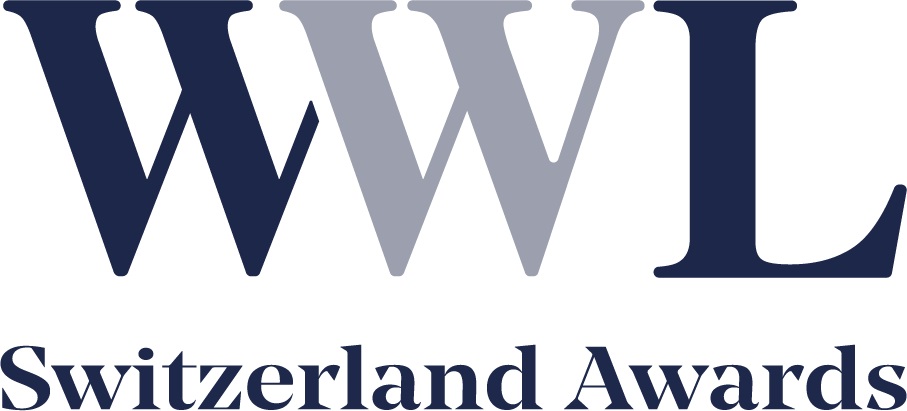Accuro’s success stems from going against the grain

WealthBriefing’s Tom Burroughes talks to Paul Douglas, Managing Director at Accuro Trust (Jersey) Ltd, about the firm’s success.
What sets you apart from your peers this year and why?
Accuro is a management-owned fiduciary business. Our clients are UHNW families and entrepreneurs, with diverse portfolios and complex structures. Our $14bn of assets under administration range from securities’ portfolios and industrial concerns to luxury assets. This January we re-invested in our business, buying out our 30% investor, to secure complete control of our firm. This move has gone against the trend of the fiduciary industry, which has continued to gravitate towards institutional and listed ownership. Our re-investment of capital into the business (rather than cash extraction) evidences our commitment to a “no-exit plan” strategy. Our long-term commitment and emphasis on relationships reassures our clients. It also demonstrates that notwithstanding the dramatic change in economic conditions this year, we continue to prioritise relationships that are meaningful and not motivated by short-term gain. This year has seen us compete and win against other firms that far exceed our size. We have also been honoured that this year in particular, existing clients have consolidated their wealth with Accuro such that we have become their de facto private office.
How have your colleagues contributed to the success of your organisation?
Our team members all come from diverse backgrounds, but we all have common values. We are proud of having decade-plus retention rates. This reassures our clients with continuity of service, a deep understanding of their circumstances and consequently mutual trust and respect. All of our equity holders lead and deliver our client service. There are no passive investors nor speculators in our ownership – our equity is fully owned by our team (including in part, all of our staff, through an employee benefit trust) and our team collaborate to constantly reinforce our client’s trust in us. Our administrators have a cap of twenty clients each, ensuring quality not quantity. Our professional network has grown substantially this year, as we have invested in organic growth of private office and corporate services for our clients. Our success is entirely attributable to the efforts of our team and the trust of our clients, as well as the proximity and productivity of our close working relationships with the leading independent private client advisors we collaborate with. Those advisors draw energy from a unifying vision of client service and excellence demonstrated by our staff. It is also important to note that we choose to define success not only through profitability and relationships, but also by ensuring we are committed to fulfilling our responsibilities. These include responsibilities to our local community, our charity partners and local sporting events. During the pandemic lockdown we responded by funding, from our own pockets, wellbeing and mental health awareness and coping sessions for our community partners and their teams. This was in addition to our local societal efforts with vulnerable groups, managed entirely by our colleagues and reflective of their passion and commitment for our success in all its forms.
What will you do to keep the standard of an award winner and push ahead in the future?
Accuro’s vision is to be a force for good socially and environmentally, whilst doing well as a business. Our aim is to raise awareness and to facilitate responsible wealth and legacy, including addressing inequality and the crisis our planet faces.
We have continued to invest in our colleagues via our “Accuro Academy” which has delivered individual coaching, in-house mentoring, mental health seminars and a leadership development programme.
Awareness of this investment in staff has seen employment applications to us consequently soar. Over 80% of our front office staff are fully qualified as STEP members, accountants, solicitors and barristers, Chartered Secretaries and Chartered Tax Advisors.
What have been the challenges you have overcome to reach such a standard?
We have maintained our niche focus exclusively on the international private client sector and that in turn has helped us win a higher calibre of client with larger portfolios of assets and more complex, demanding structures. Private clients are the very people who have an ability to add tremendous value to all areas of society by giving back and making a tangible difference to their local and international communities. Other firms have grown through book acquisition or merger. We have funded our own organic growth from the revenues of our business. We have had to work harder to build our success story and to back ourselves without raising funds from the capital markets. Our diligent and dynamic approach demands that we consider our regulatory position and risk profile throughout all of our work. We adhere to the strictest standards but do not shy away from dynamic and agile solutions. We always maintain a long-term focus and that often brings with it the challenge of not being distracted by short term pressures.
Whom do you look to for inspiration and ideas?
As an organisation we look beyond our industry and are motivated and driven by those leaders who have made a marked change to the world. We are inspired by the United Nations sustainability development goals and are constantly looking at ways in which we as an organisation can align ourselves with such. We also take inspiration from our clients who include captains of industry and renowned philanthropists seeking to better the lives of their next generations and their environment. Our learning culture drives each person within the organisation to constantly grow and seek out new ideas to improve themselves and Accuro.
What do you hope will be the result of receiving this accolade? How does it help your business in the region?
We are honoured by this very reputable industry recognition. The robustness of the judging process gives credence to the steps we have taken to deliver high quality services to our clients and the positive working environment we have created for our team. This will no doubt resonate with prospective clients and employees who may be considering Accuro as a firm with which they may wish to be associated.
ACCLAIM | WealthBriefing Recognises Leaders Across the Global Wealth Management Industry, November 2020







